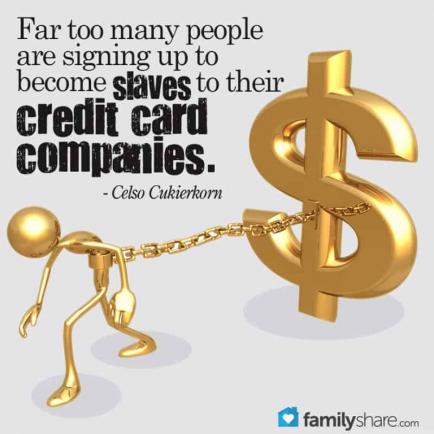
Long ago when we were kids both our parents taught us, "If you can't pay for it, don't buy it."� It sunk in. Sure, we've made some spending mistakes, particularly in our young married years. Buying cars was one of those. After pouring several thousand dollars down the drain-of-no-return, we finally got it. Save up, buy a good used car, and enjoy that euphoric no-car-debt feeling.
Good. We learned that one. Mom and Dad were right. So we proceeded to teach it to our children. Actually, we began teaching it to them even before we had it quite nailed down ourselves. We knew this philosophy of buying only what you can pay for was a smart way to live so why not pass it on, even while we're still learning how ourselves.
Then came the shopping reality. We love a good bargain, especially when it's something we need. However, we found out this can become a bit of a trap if we're not careful. When people see something on sale that they like or need, they are vulnerable to the "can't-pass-that-up"� mentality. Along with that, there's the irrational thinking that says, "What a great price. I should buy two, or three, while it's on sale."� And whammo. There went the saving. We don't know about you, but we have some items of clothing on our shelves that were too good to pass up, so we loaded up. Now a few years later we run on to them and lo and behold, they've shrunk - just sitting there on the shelf they shrunk. No longer fit, but oh, well, they're out-of-style anyway.
We finally figured out that if something is on sale and it's needed buy one, not three, unless you know you will be using it soon and you have the money for it. Otherwise, buy one and enjoy the savings.
Here are a few other ways to save your hard-earned cash
1. Shop where the best prices are
You can save a lot of money on groceries alone if you read the ads on specials-of-the-week. That may take a little time, but can add up in big savings. Why pay $3 or more for a box of your favorite cereal when you can get the same item for a dollar less at Walmart or WinCo? Shop around and compare. It works the same with clothes. Speaking of clothes, don't overlook thrift stores and yard sales. A young friend of ours likes to dress her kids in designer fashions, but can't afford them so she goes to yard sales in upscale neighborhoods and cashes in on great deals. Paying three bucks for a cute outfit instead of 30 is smart shopping.
2. Use a charge card ONLY if
you will pay it off completely when the monthly statement arrives. If you don't, you will end up paying interest you obviously can't afford or you would have paid cash. The best advice is to never use a charge card, but if you must when buying an airline ticket or such online, pay it off immediately. It's a simple fact that if you regularly use a credit card you are more likely to buy things you cannot afford. Carry cash or a checkbook to pay for the everyday stuff so you can keep a handle on what you're spending.
3. Check your bank statements for charges
you may not have authorized. Recently we were dumbfounded to find a sizeable monthly charge for a service we did not buy into. We challenged them and received a credit for it. Pay attention to your bank statements. You could lose a bundle if you don't do your bank reconciliations monthly. These are the little charges, or sometimes big ones, that may fall through the cracks unnoticed.
4. Eating out
often can eat up your money fast. Having dinner out for date night with your spouse is important. Just plan for it. Decide what your monthly budget will allow for this needed weekly indulgence. Set a limit on what you'll spend per evening out and stick with it. We recently went online to see if one of our favorite restaurants had a discount coupon for that week. Voila! There it was - buy one entree and receive one of equal value free! We printed it off and had a great time for half the price.
Consider the many ways you spend your money and start eliminating the expenditures that really don't matter. Or if it's something that does matter, find a less expensive way to meet the need. Become a master at stretching those dollars. Saving in the right places can be as helpful as getting a raise. Teach these principles to your children and give them a head start in successful financial stewardship.

